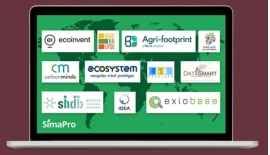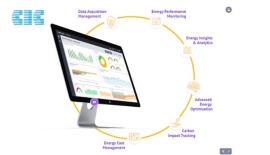
Công ty cổ phần công nghệ và tư vấn CIC

Successfully Organize a Conference on the Application of Bentley's BIM/Digital Twin Solutions...

Net Zero: CIC Launches Greenhouse Gas Inventory Website

Bentley Energy Solution - A Comprehensive Solution for the Energy Sector

Release of enjiCAD 2025 SP2: Elevating Design Performance

5 Technology Trends Shaping 2025
CBAM mechanism is extended for another 30 days
22/02/2024
Lượt xem 58
Recently, the European Commission (EC) issued the latest announcement on CBAM - Carbon Border Adjustment Mechanism. Accordingly, the time to submit reports on CBAM is extended by 30 days because too many importers are currently having difficulty submitting their first reports due to related technical issues. Detailed information about the EC report can be viewed here.
Reports on the first CBAM carbon border adjustment mechanism are expected to be submitted by March 31, 2024. Filers who do not ener major technical problems are still encouraged to submit CBAM reports before the end of the reporting period, the EC emphasized.
CBAM filers can then amend and correct their first CBAM report until July 31, 2024.
Previously, the EU announced the application of the Carbon Border Adjustment Mechanism (CBAM) phase 1, to be implemented October 1, 2023 to promote the global green transition. CBAM issued by the EU is an environmental trade policy that includes carbon taxes on goods imported into EU markets based on the intensity of greenhouse gas emissions in the production process in the host ry.
The Vietnamese Trade Office in Belgium, Luxembourg and the EU (Ministry of Industry and Trade) said that the EU announced the Implementing Regulation (EU) 2023/1773 regarding the obligation to report the purpose of CBAM during the transition period, taking effect. September 16, 2023. Accordingly, this Implementing Regulation details the transitional reporting obligations for EU importers of CBAM (aluminum, iron and steel, fertilisers, cement, hydrogen, electricity) goods and the methodology for calculating them. Calculate the integrated emissions released during the production of these goods. You can see the announcement guiding the implementation of the CBAM implementation roadmap announced by the EU in September 2023 here.

CBAM implementation roadmap
To help both importers and third ry manufacturers, the EC has also published guidance for EU importers and non-EU establishments on the practical implementation of the new regulations.
Dedicated IT tools, training materials, webinars and guides will support businesses with calculations and reporting as the transition begins.
Importers will be required to collect fourth quarter data, starting October 1, 2023, and the first report must be submitted by January 31, 2024.
The gradual adoption of CBAM over time will also enable a careful, predictable and balanced transition for EU and non-EU businesses, as well as for public authorities.
During this period, importers of goods covered by the new regulations will only have to report greenhouse gas (GHG) emissions in imported goods (direct and indirect emissions) without having to pay any any fee.
Indirect emissions will be covered in the post-transition period for certain sectors (cement and fertilizer) on the basis of the identification methodology set out in the Implementing Regulations and accompanying guidance. according to.
During the first year of implementation, companies will have the option to report in three ways: full reporting according to the new method (EU method); reporting based on equivalent third ry national systems; Report based on reference values.
From 1 January 2025, only the EU method will be accepted.
Once the permanent system comes into force on January 1, 2026, importers will have to declare annually the quantity of goods imported into the EU in the previous year and the associated greenhouse gas emissions.
The importer will then submit the corresponding number of CBAM certificates. The price of the certificate will be calculated depending on the weekly average auction price of EU ETS subsidies expressed in euros/tonnes of CO2 emitted.
The phasing out of free allocations under the EU ETS will take place in parallel with the gradual introduction of CBAM over the period 2026-2034.
For more detailed information about services related to greenhouse gas inventory and environmental certification, please contact: CIC Consulting and Technology Joint Stock Company - Tel: 0866059659



